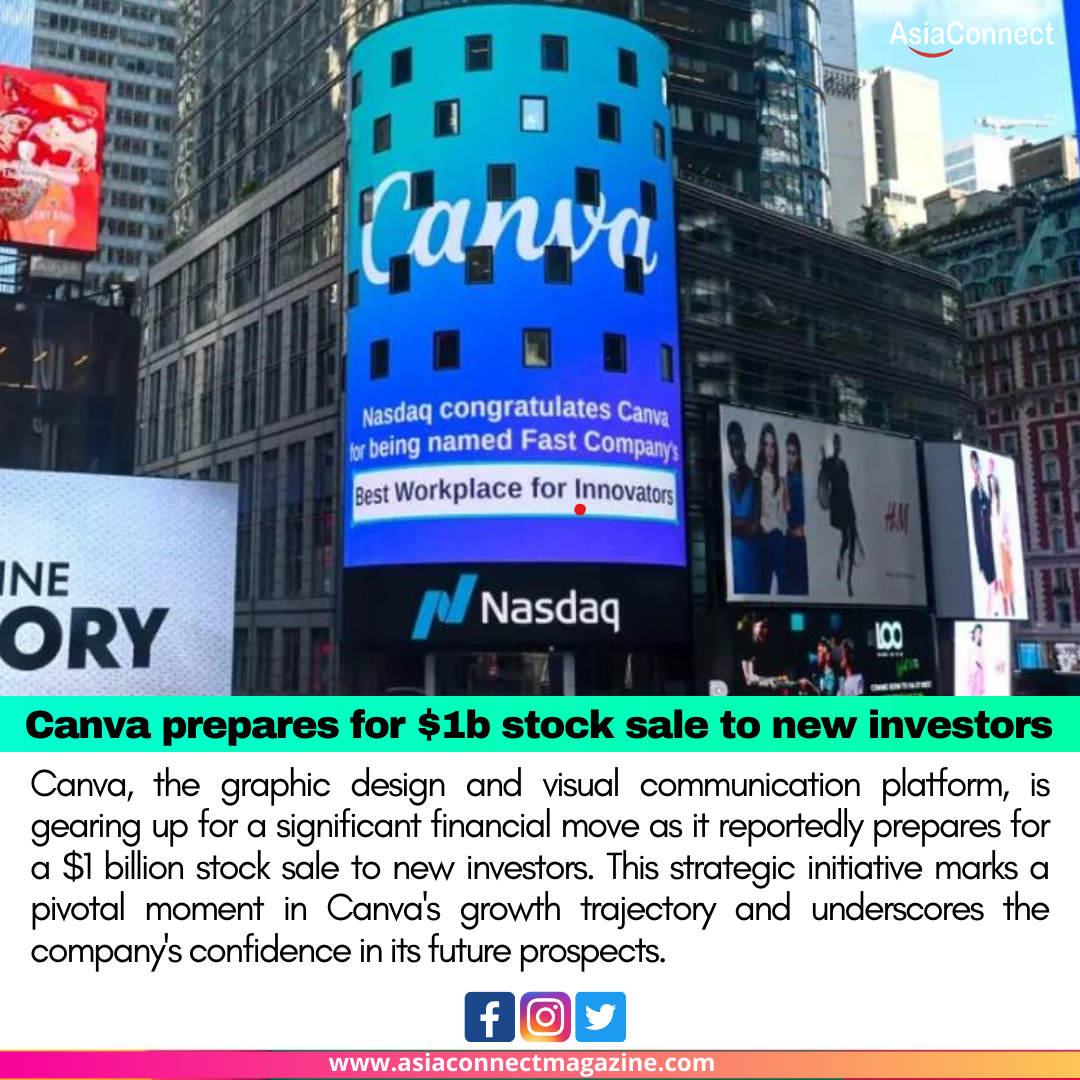Canva, the graphic design and visual communication platform, is gearing up for a significant financial move as it reportedly prepares for a $1 billion stock sale to new investors. This strategic initiative marks a pivotal moment in Canva’s growth trajectory and underscores the company’s confidence in its future prospects.
The decision to raise $1 billion through a stock sale signals Canva’s ambitious expansion plans and a belief in the continued demand for its services. The platform, founded in 2012 by Melanie Perkins, Cliff Obrecht, and Cameron Adams, has become a household name for individuals and businesses seeking user-friendly design tools to create professional-quality graphics, presentations, posters, and more.
One of the primary objectives behind the anticipated stock sale is likely to be the infusion of fresh capital into Canva’s operations. This capital injection can be instrumental in funding research and development initiatives, expanding the platform’s feature set, and enhancing its technological infrastructure. It could also support Canva’s global expansion efforts, allowing the company to tap into new markets and fortify its position in existing ones.
The $1 billion stock sale is poised to attract attention from institutional investors, venture capitalists, and potentially even existing stakeholders looking to increase their holdings. Canva’s ability to secure such a substantial investment reflects investor confidence in the platform’s business model, growth trajectory, and the overall potential of the graphic design market.
Canva’s rise to prominence has been characterized by its user-centric approach and a commitment to democratizing design. The platform offers a range of intuitive tools that empower users, regardless of their design expertise, to create visually compelling content. This appeal has resulted in widespread adoption, with millions of users worldwide relying on Canva for their design needs.
The funds raised from the stock sale could also be directed toward strategic acquisitions. Canva has a track record of acquiring complementary companies to enhance its capabilities. A sizable capital infusion may enable the company to explore acquisition opportunities that align with its vision of becoming a comprehensive visual communication platform.
It’s worth noting that Canva has consistently demonstrated its agility in adapting to market trends. The platform’s evolution from a startup to a global design powerhouse has been marked by strategic partnerships, continuous innovation, and a focus on user feedback. The anticipated stock sale is likely a testament to the company’s commitment to staying at the forefront of the design industry.
As with any significant financial move, there are risks and challenges associated with Canva’s $1 billion stock sale. Market conditions, investor sentiment, and competition within the design and collaboration space are factors that the company will need to navigate effectively. Additionally, Canva will need to articulate a compelling narrative to prospective investors, outlining its growth strategy and addressing any concerns they may have.
In conclusion, Canva’s preparation for a $1 billion stock sale to new investors is a pivotal moment in the company’s journey. The funds raised through this initiative can potentially reshape the dynamics of the graphic design industry, fueling Canva’s innovation, expansion, and strategic initiatives. As the platform continues to empower individuals and businesses in visual communication, the anticipated stock sale positions Canva for even greater heights in the evolving landscape of design and technology.





